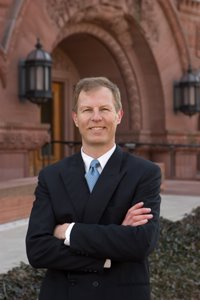On Sunday, September 24 an editorial appeared in the Toronto Star by longtime Liberal strategist Tom Axworthy. Once a close advisor to Pierre Trudeau, Axworthy is currently co-chair of the federal Liberal's Renewal Committee, which has been charged with the daunting task of reevaluating the party's policy. The editorial discussed the bias that the Green Party faces. Here it is, in its entirety:
Stop bias against Green party
Tom Axworthy
The Toronto Star
September 24, 2006 – It is time the Canadian political and media establishments stop discriminating against the Green party and the ethic it represents. If we are serious about preserving the planet and if we care about fair play, Canadians must demand the Greens be welcomed to the political table. The basic premise of the Green movement is that "all life in the planet is interconnected and that humans have a responsibility to protect and preserve the natural world." Founded in Canada in 1983, the tiny minority of Greens in the 1980s were right about the impact of the fossil-fuel economy on global warming. As the science on climate change has become more mainstream, so should the Greens.
Global warming means that extra-solar radiation is being trapped at the Earth's surface; the rise in average temperature is only the signal that something profound is going on. The Intergovernmental Panel on Climate Change, the world's most authoritative scientific body on the problem, has documented the steady rise in global temperatures and attributes most of it to human activities. James Hansen, head of the NASA Goddard Institute for Space Science, believes that in 10 years we will be at the tipping point — there will already be too much carbon dioxide in the system.
According to well-known environmentalist Bill McKibben, carbon dioxide, which has been stable at 275 parts per million throughout human history, has increased in recent years to 380 parts per million and is going up by 1.5 parts per million a year. Every time we burn a gallon of gas, we put more than two kilograms of carbon into the atmosphere. If the world's temperature rises by only 5 degrees, it will make the Earth hotter than it has been for 400 million years.
Already, we are seeing the impact. Last week, satellite images revealed dramatic openings in the Arctic ice big enough to allow a ship to sail to the North Pole. Scientists, like James Lovelock, creator of the GAIA Hypothesis, are deeply concerned. He wrote this year "the climate centres around the world, which are the equivalent of the pathology labs of a hospital, have reported the Earth's physical condition and the climate specialists see it as seriously ill, and soon to pass into a morbid fever that may last as long as 100,000 years."
Scientists, like the Greens, have been worried about climate change for decades. New to the movement are evangelical religious leaders: In February 2006, 86 of them declared "Love of God, love of neighbour, and the demands of stewardship are more than enough reason for evangelical Christians to respond to the climate change problem with moral passion and concrete action." These traditional allies of President George Bush have broken with him on the issue of climate change. They argue that change is real, that the poor will be hardest hit (as happened with Hurricane Katrina) and that Christian moral convictions demand a response. An evangelical-scientific alliance to force business and government to exercise responsible stewardship could change politics in a hurry.
If the Greens have been right on one of the largest issues of our time, they have also been dogged in building support. In the 2006 election, they won 4.5 per cent support by running candidates in all 308 ridings. Yet the established parties and the networks have not allowed the Green leader to participate in televised debates.
The Bloc Québécois, which runs no candidates outside of Quebec, gets hours of television time; the Greens are shut out. This has to change. If Canadians are ever to make the leap from a consumer society to a conserver society, the job of public education will be tremendous. For reasons of substance (to create a large environmental coalition dedicated to change) and for reasons of ethics (to give a national party a fair chance), Elizabeth May, the Green leader, must be included in the next debates. The new leader of the Liberal party should refuse to participate in any debate that excludes the leader of the Greens. To prevent climate change, we must change the current climate of denial; a starting point would be giving the Green party the respect it deserves.
Thomas S. Axworthy is chairman of the Centre for the Study of Democracy at Queen's University.


